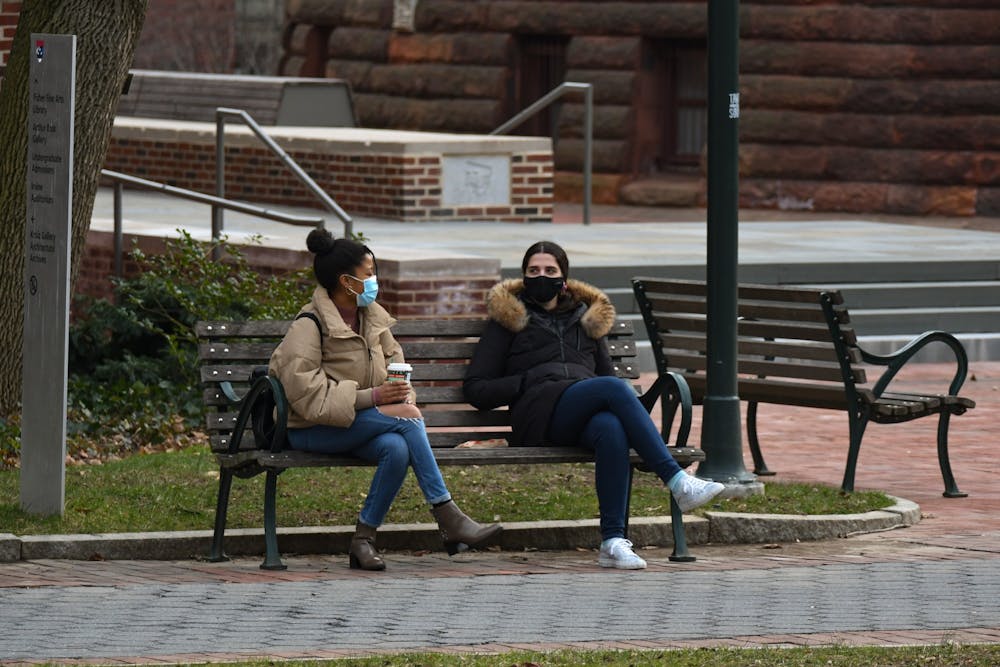
No one said that moving thousands of students on campus in the middle of a pandemic would be easy. That’s why Penn delayed move-ins in the first place, when they had yet to implement cohesive testing and isolation protocols. But when we look at the numbers, Penn has pulled off what seemed impossible last year: a successful move-in while coronavirus cases nationwide are higher than ever. The cumulative coronavirus prevalence rate on campus is only 1.21%, and a week out from move-in, 90.3% of on-campus isolation capacity remains available.
Of course, Penn has encountered, and will continue to encounter, obstacles on the path to stabilizing the spread of COVID-19. Just in the past weeks, first years have violated Penn’s Quiet Period guidelines, residential advisors and graduate assistants have resigned en masse, and West Philadelphians have heavily criticized Penn for inviting students back to campus. Perhaps most concerning, there is no sign of Penn disciplining any students that have partied or otherwise violated COVID-19 guidelines. The onus is not on Penn alone to be COVID-safe; we have to do our part, too.
We are more than capable of following coronavirus restrictions. After all, we are here because we are intelligent, inquisitive adults that showed promise in our college applications. Among us are potential world leaders and award-winning researchers, and so much else. Many of us have stepped up in our communities over the past years, whether by donating time and money to nonprofits, protesting, and getting involved in recent elections. This is the basis of Penn’s Year of Civic Engagement. But when us students can’t even come “together apart” to save lives in one of the foremost health crises in generations, Penn’s commitment to civic engagement falls flat on its face.
It is true that Penn’s administration has had its shortcomings, but it is impractical and near impossible to expect Penn to patrol and punish every social interaction that Penn students have. If they did, they’d be more of an over-glorified babysitter than a university.
Many students, myself included, are upset when they see their peers interacting in large groups outside without social distancing six feet apart, or when their friend greets them with a big hug instead of an elbow bump. And yet many students, myself included, are also guilty of these violations of the Quiet Period, in part because these smaller violations go unnoticed.
The Quiet Period’s rules, like staying six feet apart outside or limiting your essential activities, may often feel vague and trivial. I know that I should follow them, but I’m also constantly asking myself: to what extent I am willing to break or stretch these rules to fit my needs and wants? Can long walks through Philly be considered essential, for the sake of exercise? What difference would it make if I stand five feet away from someone, as opposed to six?
Violations of the Quiet Period remind me of jaywalking. Yes, it’s technically illegal, but when have you seen a cop write someone up for it? Society relies on the little decisions that people make every day, like jaywalking, and you can make lots of little bad decisions with seemingly no consequences. That’s part of why this pandemic has gone on for so long.
You may say that Penn endangers the lives of others when they invite students back to campus, and you would be right. But blaming only Penn ignores the many little decisions that we make everyday. There are very real, harmful, and at times deadly consequences that arise when we go out and party, or even when we get a little too close to a friend that later tests positive. That’s what being an adult is like. Though Penn may have brought us here, we remain responsible for our actions.
It can be scary to realize that responsibility, especially during a pandemic where our behavior can mean the difference between life and death for others. But holding the lives of other people in our hands is a concept that many Penn students encounter. In the future, many of us will work as doctors treating patients, as lawyers fighting for their clients, or as consultants advising business owners. If we choose, our actions can have brilliant impacts on those around us.
Fellow students, we have a choice. If we don’t act responsibly now, Penn may be forced to treat us like children, and we would miss out on the independence and personal growth that makes the college experience so memorable. Alternatively, we could be responsible adults, and make choices that promote public health, even when we aren’t being watched. Which will it be?
CAROLINE MAGDOLEN is a College and Engineering first-year student studying Systems Engineering & Environmental Science from New York City. Her email address is magdolen@sas.upenn.edu.
The Daily Pennsylvanian is an independent, student-run newspaper. Please consider making a donation to support the coverage that shapes the University. Your generosity ensures a future of strong journalism at Penn.
Donate







